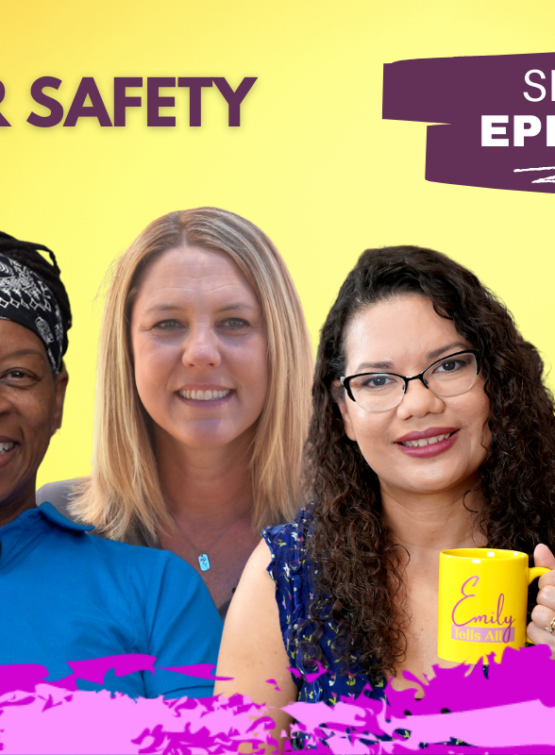Air Date June 17, 2021
Title: June is National Safety Month
In this episode of Emily Tells All, Emily talks to persons in our community on the front lines who impact our individual and collective safety.
Orange County Fire Rescue – Lieutenant Dyana Alexander
Orange County Fire Rescue, Dispatch Supervisor – Elaine Stanley
911 Calls and Beyond – Keeping You, Your Family, and the Community Safe
As part of National Safety Awareness Month, my guests Dispatch Supervisor Elaine Stanley and Lieutenant Dyana Alexander from the Orange County Fire Rescue Department provide information about how to improve your chance of receiving necessary help from emergency personnel. The police, fire, and rescue services you reach when you place a 911 call need information from you so they can do their job successfully. We all understand the heightened emotion and strain present when someone is injured or a horrible event like a house fire occurs. The actionable tips in this article will help you and your family prepare.
Have Essential Information Ready
A 911 dispatcher must get as much information possible in a timely manner so they can send the appropriate response to help. This includes your name, location, phone number, and details about the emergency itself. The Orange County Fire Rescue recommendations include:
- Take note of street names, mile markers, shop locations, and geography.
- Display address and phone number on a card near the phone.
- Teach children this information and how to use 911 responsibly.
Help First Responders Help You
One of the most important things to remember is that the people responding to a 911 call only have limited information. They can only do so much over the phone or through a text. The more understanding we have about first aid and emergency assessment, the better the outcome. Our actions during a medical emergency, violent crime, or disaster such as a fire can make all the difference between a bad day and horrific tragedy. To help keep ourselves, our families, and the local community safer, we suggest the following:
- Take an approved first aid course and have a well-equipped kit on hand.
- Learn CPR. Call 311 for information or research options through HOAs, community centers, schools, healthcare facilities, and more.
- Keep calm and focus on improving the situation.
Tips for 911 Calls During Fire Emergencies
The sight of fire or smoke in our homes, a neighbor’s home, or any other location in our communities can cause panic and distress. Although the first recommendation is to call 911 as soon as possible, there are other necessary actions that will help maintain safety in these disasters. One of the most important things we can do is create a specific plan that covers calling for help and getting to safety. These steps can help all of us protect friends, families, and neighbors.
- Leave the home or other building first and then call 911.
- Choose a meeting point in a safe location where the whole family can find each other.
- Identify multiple exit routes from every room that all family members can access.
The outcome of an emergency changes considerably if we first take steps to minimize risk. Always have appropriate and functioning smoke detectors in multiple rooms and hallways. Test them at least once per year, replace batteries, or the entire unit promptly. Install fire extinguishers in the kitchen, garage, and other locations with high risk and make sure they are easily accessible.
Keeping our homes, families, and neighbors safe depends on each of us to do what is best in every situation. When we know what to do, what we would say on a 911 call, and how to minimize risk every day, we all fare better when life hands us difficult situations.



